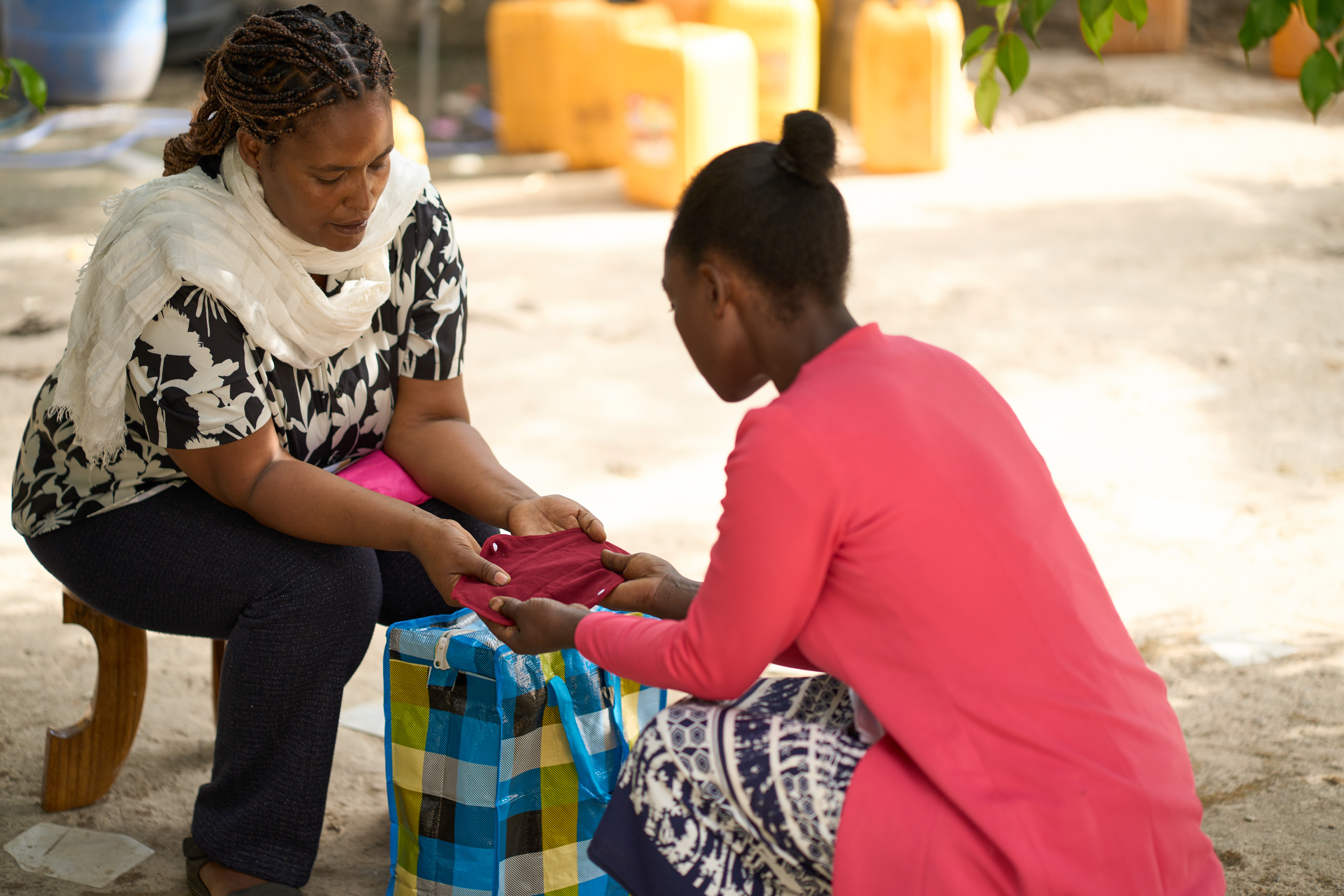In Ethiopia, fewer than half of women and girls have access to adequate, affordable menstrual products. This disrupts their ability to pursue their everyday lives or jobs – one of the reasons why women in this East African country experience poverty far more frequently than men. What is more, many women, especially in rural areas, are denied basic knowledge about menstruation. Among the reasons for this are the prevailing taboos.
This is where Wube Tadesse Lalebo comes in. Wube lives near Yirgalem, around 260 kilometres from the capital, Addis Ababa. She is self-employed and goes from house to house selling everyday articles. A few months ago, she added menstrual products made by Mela for Her to her range of goods. The company is based in Addis Ababa, where it manufactures reusable menstrual pads that last around two to four years. This makes them not only more eco-friendly than disposable products but also cheaper in the long term.
‘The training made us women stronger and showed us that we can be part of the change process.’
Wube Tadesse Lalebo
Wube Tadesse Lalebo: a voice for change
Wube does not just sell the products. She also raises awareness, not only on how to use menstrual products correctly, but also about women leading self-determined lives and menstruation being a normal part of that. Addressing questions on the menstrual cycle without constraint and raising awareness of the subject is something she learned alongside many other women retailers in training sessions supported by Invest for Jobs.
 © GIZ - Feliz M Weber
© GIZ - Feliz M Weber
‘I was already selling hygiene products,’ says Wube, ‘so I was aware that many women knew little or nothing about sustainable menstrual products. When I heard that we could sell the Mela for Her products ourselves, I knew immediately that we could have a positive influence on our community.’ The products are reliable and give their users greater independence and confidence, she says.
In the training sessions, Wube learned other important skills to help her manage her earnings and outgoings efficiently. ‘The training made us women stronger and showed us that we can be part of the change process.’ It is not only Mela for Her’s customers who benefit from the training sessions and the resulting product sales. The company is also creating sustainable manufacturing jobs, generating additional income for the women who work there as well as the self-employed saleswomen – a win-win-win situation.
Breaking taboos
It takes courage to overcome shame. Wube found the first couple of days of the training week strange and challenging. It took a lot of willpower to talk so openly about menstruation with and in front of around 20 other women. But at the end, she felt freer and stronger, she remembers: ‘To start with, many of us were quite guarded, as traditionally this is not a topic we talk about. But that changed in the course of the training.’ Menstruation, she adds, is not just a topic for women. ‘Men need to be included in this process of normalisation too.’